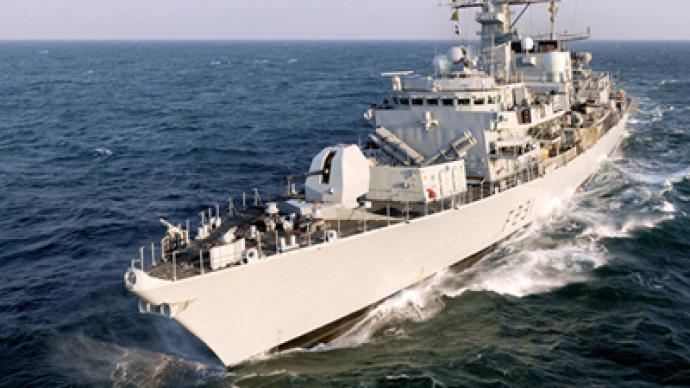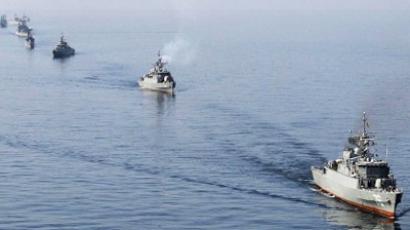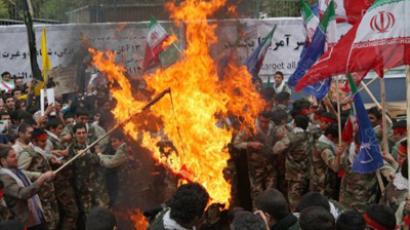'Clear signal' to Iran: UK warns of more firepower in Hormuz

Britain could send reinforcements to defend the sensitive Strait of Hormuz against a possible blockade by Iran.
On Sunday, the Royal Navy dispatched HMS Argyll to a flotilla of mostly American warships in the Gulf region. These have been gathering ever since the tension between Iran and the West started to bubble last year.The move sends “a clear signal” to Tehran, Defence Secretary Philip Hammond said on Tuesday, adding that “the UK has a contingent capability to reinforce that presence, should at any time it be considered necessary to do so.”The flotilla passed within a few kilometers of the Iranian coast.Besides the HMS Argyll, it includes two destroyers and a guided missile cruiser from the US Navy, the USS Abraham Lincoln aircraft carrier, and a French warship. The US, France, and UK maintain a permanent military presence in the Persian Gulf. Another US aircraft carrier, the Carl Vinson, has already been in the region for several months. Each of the carriers is equipped with more aircraft than Iran has in commission.The Strait of Hormuz has been high in the headlines lately. Iran threatens to block the naval route, through which some 35 per cent of global oil tanker traffic passes, in response to an embargo on Iranian oil imposed by the US and the EU.The US has said it will use military force to lift the blockade, should Iran choose to impose one. Tehran recently held some of the biggest naval exercises in the region in years, unnerving some Gulf nations. Earlier this month, Iran announced it would also hold drills in the Strait of Hormuz in February.
‘Iran will survive’
Soraya Sepahpour-Ulrich, an independent researcher and writer, believes that Iran will eventually survive the pressure coming from the West.She insists that there has been a covert war against Iran for decades. “America and Israel have unleashed terrorists in Iran – they’ve been taking out people, they’ve been killing them. And sanctions are warfare.”“But Iran has become very well experienced in being able to fight off these wars and these covert actions,” she states. “America, Israel and the Western allies are only harming themselves.”Sepahpour-Ulrich also argues that the pressure on Iran has nothing to do with the country's nuclear program. “America is pushing for regime change in Iran. It is important to Washington to take out the regime in Iran and install a puppet that would side with the American power structure and American ambitions in the region.”














